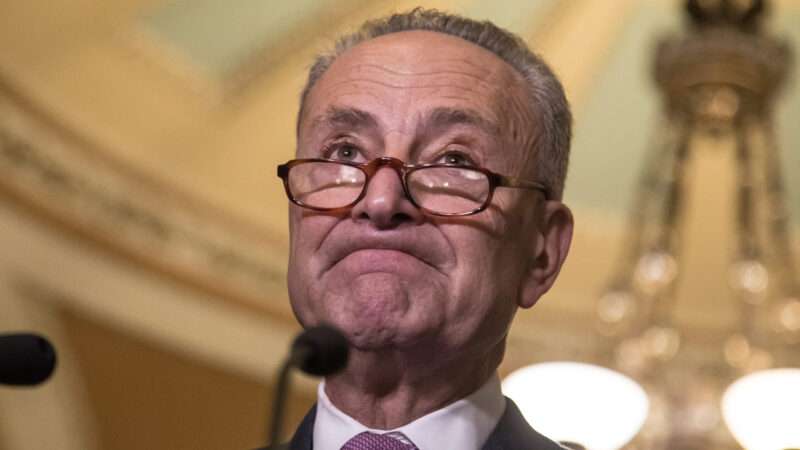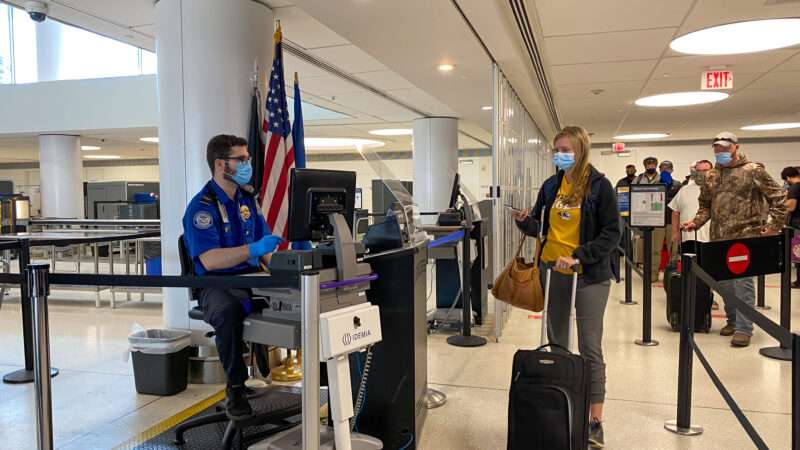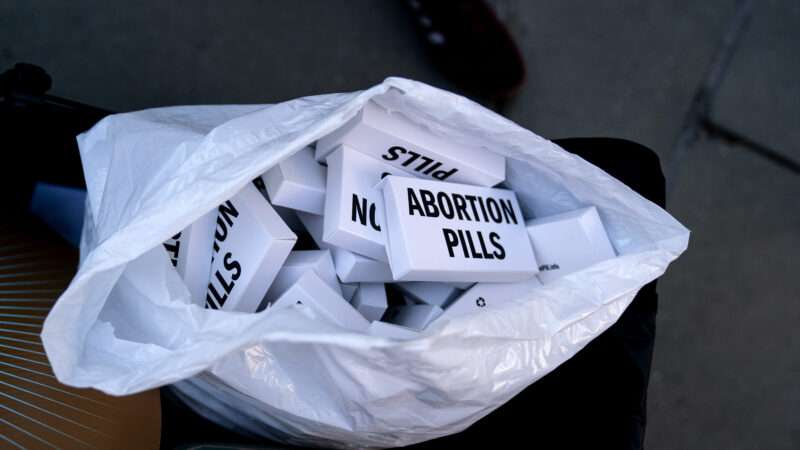
For much of the first year of Joe Biden’s presidency, progressive Democrats pushed radical ideas to change Senate rules, abolish the filibuster, and enact their agenda with a simple majority.
Even Biden, ever the rusty weather vane of Democratic politics, eventually swung around to supporting the idea. Though he has a long track record of defending the filibuster—killing it would only demonstrate “the arrogance of power,” he said on the Senate floor in 2005—Biden in January officially called for the Senate to abolish the rule requiring 60 votes on most bills. “Let the majority prevail,” Biden said. “If that majority is blocked, then we have no choice but to change the Senate rules, including getting rid of the filibuster.”
For Democrats, however, the stumbling block during the first 15 months of Biden’s presidency hasn’t been the Senate’s 60-vote “cloture” rule or the Republican minority’s use of it. It’s been that Democrats like Sen. Joe Manchin (D–W.Va.) and Kyrsten Sinema (D–Ariz.) have objected to key parts of the party’s agenda—including the anti-filibuster campaign.
“Eliminating the 60-vote threshold will simply guarantee that we lose a critical tool that we need to safeguard our democracy from threats in the years to come,” Sinema said on the Senate floor in January, just days after Biden’s call to action.
Looks like she’s about to be proven right.
“Democrats need to wake up, because right now they’re sleepwalking into disaster, with no plan to avert it,” writes Simon Bazelon, an advisor at the liberal political think tank Data for Progress, in a post published Monday on Matthew Yglesias’ Slow Boring newsletter. Bazelon cites polling data and historical midterm election trends to suggest that Democrats are likely to lose three to four Senate seats this year before heading into a potential electoral wipeout in 2024.
Bazelon’s post builds on a tweet from David Shor, a Democratic pollster who has lately played the role of liberal Cassandra, in which Shor suggests that Republicans could be heading for a filibuster-proof 60-seat Senate majority after the next election.
Unless we see big structural changes in the Democratic party's coalition, then the modal outcome for 2024 is Donald Trump winning a *filibuster-proof trifecta* with a minority of the vote.
If you want to help stop that, come check out our job board! https://t.co/2xKqs6nT3e pic.twitter.com/cK1ojkyYII
— (((David Shor))) (@davidshor) April 4, 2022
It’s probably right to be skeptical that Republicans will be able to swing 10 or more Senate seats in the next two elections—if for no other reason than the fact that politics change rapidly these days, and today’s trends will be in the distant past by November 2024.
Still, a quick look at the Senate maps for the next two elections suggests that Republicans are poised to pick up several seats, even if the party can’t hit the all-important 60-seat threshold. In 2024 alone, Democrats have to defend seats in Arizona, Michigan, Minnesota, Montana, Nevada, New Mexico, Ohio, Pennsylvania, Virginia, and West Virginia. That’s 10 seats that Republicans could, in a very good year, flip. If you assume that Republicans will pick up at least two or three seats currently held by Democrats this year—Arizona, Georgia, and Nevada seem the most likely to flip, and midterm elections are typically unfavorable for the president’s party—then getting to 60 by winning seven or eight of those other races in 2024 is at least within the realm of possibility.
“‘Business as usual’ will result in President Trump or President DeSantis, with somewhere between 56 and 62 Senate seats,” writes Bazelon. “And this is actually worse than it might seem at first. In recent years, Republican senators who have retired (or announced that they are retiring) have skewed heavily toward those who were willing to occasionally stand up to Trump, like Jeff Flake, Lamar Alexander, Rob Portman, Pat Toomey, and Richard Burr. If Trump returns to office, he will do so with a median Senator who is far more deferent to his wishes than the last time around.”
Of course, it’s also not difficult to imagine Republicans blowing it despite this favorable electoral terrain. Look no further than the GOP Senate primary in Pennsylvania to see how the GOP, now unmoored from any sense of commitment to principles or specific policies, is inviting voters to take one look and go running back to the Democrats. Grievance politics that lacks a coherent and compelling vision for the future of America will never provide more than a temporary electoral advantage.
But it doesn’t really matter whether Republicans can reach the 60-seat threshold or not. What matters is that they are now overwhelmingly likely to have a Senate majority after this year’s midterms, with a good chance of expanding that majority in 2024 when Democrats have to defend the gains they made during Trump’s midterm defeats in 2018.
When that happens, Democrats, liberals, and anyone else who isn’t thrilled by the prospect of an increasingly authoritarian Republican Party getting to enact its agenda at the federal level will owe a debt of gratitude to Sinema, Manchin, and other Democrats who resisted the urge to blow up the filibuster. Instead of an emerging and permanent Democratic majority, the party is now heading into a cycle where it is likely to be playing defense.
Thankfully, one of the fundamental virtues of the American democratic system is that legislative majorities are not all-powerful. Minorities in Congress rarely get what they want, but they can slow or stop the majority from simply ramming through whatever agenda it wants.
Some Democrats have spent the past year or so acting like that’s a flaw in the system. They were wrong, as they’ll likely learn very soon.
The post Democrats Might Soon Rediscover the Value of the Filibuster appeared first on Reason.com.
from Latest https://ift.tt/GN8Jkar
via IFTTT







